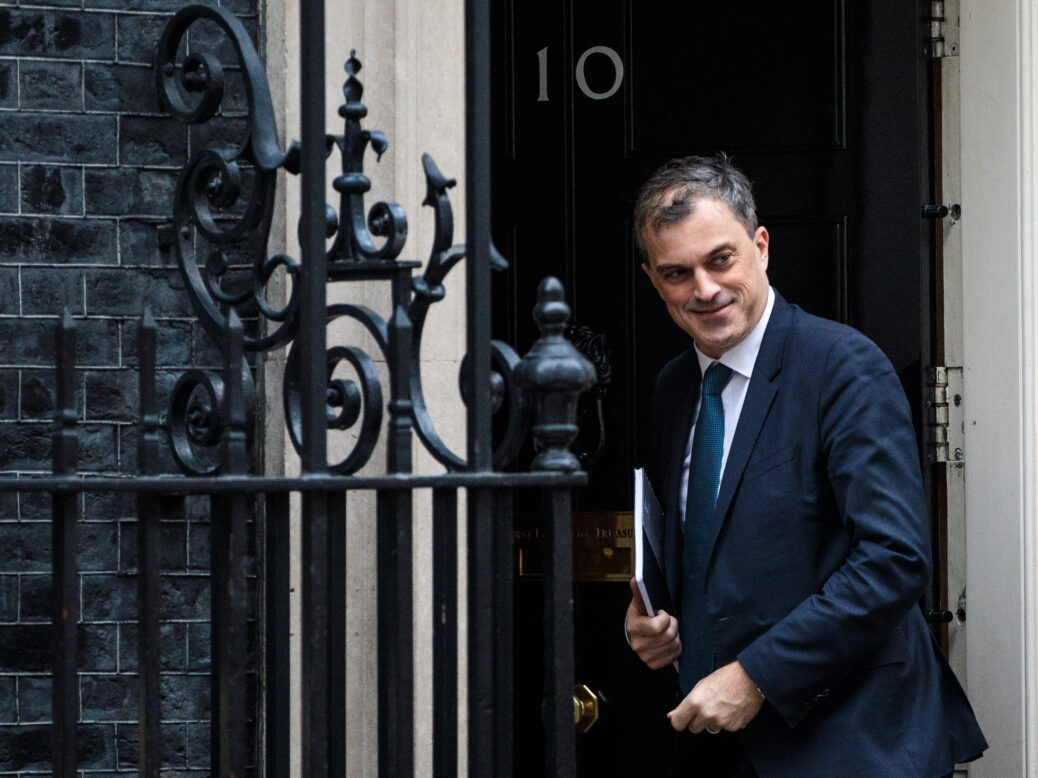
The real fight starts here. With Theresa May’s Brexit withdrawal agreement signed off by the EU27, Downing Street has a little over two weeks to pull off the impossible and convince a majority of MPs to vote for it.
Our tally of Conservative who have pledged to oppose the deal is currently running at 89, and only a handful of Labour MPs have publicly entertained voting for the deal, with many more ruling out. At this stage, success in the Commons is a forlorn hope – but Tory whips will nonetheless spend the days between now and the 12 December meaningful vote trying to peel off as many rebels as possible.
To that end, as I revealed on Twitter this morning, Chief Whip Julian Smith has invited every former Conservative whip still serving in the Commons to a special meeting in the Cabinet Office tonight. Refreshments are promised as inducement, but that won’t guarantee a full house.
The Whips’ Office diaspora is the parliamentary equivalent of a Dulux colour chart: its members occupy every conceivable position on Brexit, running the gamut from May loyalists like Patrick McLoughlin and Michael Fallon to recent cabinet departures like Esther McVey and David Davis, as well as hardcore ERG functionaries like Mark Francois. Lots of those invited want nothing to do with Downing Street, still less Smith’s attempts to sell the deal.
That the call has gone out is nonetheless revealing. Some have characterised it as an attempt to construct a Dad’s Army of willing, battle-hardened volunteers to reinforce what is largely a very inexperienced Whips’ Office, which, with the exception of Smith, his deputy Chris Pincher and number three Mark Spencer, is entirely populated by MPs appointed in 2017 and 2018. (ConHome’s Henry Hill has written at length on that here.)
The hope is that experienced hands – familiar to MPs from their own days as whips, or otherwise imbued with authority from subsequent cabinet gigs – will be more able to convince colleagues than the government machine. Or, more cynically, that they will be able to provide “knowledge and intelligence” on their colleagues. The, as it happens, is a tactic that’s also been used by the ERG, whose leadership has deliberately chosen Francois to deliver warnings to the government on account of a reputation for straight dealing won in his days as a whip.
Throughout the Brexit process, MPs who can be enlisted to spin the Downing Street line to their colleagues have been more important than the members of the government payroll who do so on the airwaves. Geoffrey Cox, now attorney general, is a good example: he argued in favour of Chequers at the 1922 Committee the day David Davis and Boris Johnson quit government. Veteran Brexiteers Edward Leigh and Michael Fabricant – another former whip – pursued a similar tack at the height of the push for a vote of no confidence in May earlier this month, urging their colleagues to think again.
For a flavour of how successful any efforts by Smith to get a similar drive going will be, look to the reaction from the harder end of the ERG to representations from the likes of Leigh, Fabricant, and John Hayes, the maverick former minister knighted last week. Far from being receptive, many colleagues dismissed them as patsies and stooges for Team May. Trust between Downing Street and Eurosceptic backbenchers is so low that even members of the parliamentary party who command widespread respect will not convince if they are perceived to be acting on Smith’s command. And in any case, it’s a moot point: even if Smith’s Home Guard exceed low expectations, there is no chance of them delivering a majority.






